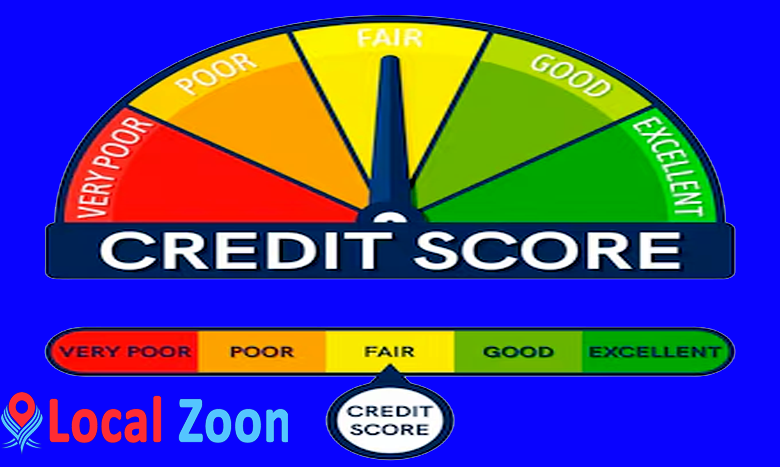The Ultimate Guide to Boosting Your Credit Score in 2024

In today’s financial landscape, having a strong credit score is essential. Whether you’re looking to secure a mortgage, get approved for a car loan, or obtain a better credit card, your credit score plays a critical role. Here’s an in-depth guide to help you boost your credit score in 2024, ensuring you are financially fit for any challenges or opportunities that come your way.
Understanding Credit Scores
What is a Credit Score?
A credit score is a numerical representation of your creditworthiness, typically ranging from 300 to 850. The higher your score, the more attractive you are to lenders. It is based on your credit history, which includes your borrowing and repayment activities.
Why Your Credit Score Matters
Your credit score affects various aspects of your financial life:
- Interest Rates: Higher scores generally qualify for lower interest rates.
- Loan Approvals: A strong score increases your chances of loan approval.
- Credit Limits: Better scores can result in higher credit limits.
- Employment Opportunities: Some employers check credit scores during the hiring process.
Factors Influencing Your Credit Score
Payment History (35%)
Your payment history is the most significant factor. Late or missed payments can drastically lower your score. Ensure all bills are paid on time.
Credit Utilization (30%)
Credit utilization is the ratio of your current debt to your credit limit. Keep your utilization below 30% to maintain a healthy score.
Length of Credit History (15%)
The longer your credit history, the better. This factor considers the age of your oldest account, the age of your newest account, and the average age of all your accounts.
New Credit (10%)
Frequently opening new credit accounts can negatively impact your score. Each hard inquiry (a credit check by a lender) can reduce your score slightly.
Credit Mix (10%)
Having a variety of credit types, such as credit cards, mortgages, and auto loans, can positively impact your score.
Strategies to Improve Your Credit Score
1. Review Your Credit Report Regularly
Start by obtaining a copy of your credit report from the three major credit bureaus: Equifax, Experian, and TransUnion. Reviewing your report allows you to identify and dispute any inaccuracies that may be dragging down your score.
2. Pay Your Bills on Time
Late payments can stay on your credit report for up to seven years. Set up payment reminders or automatic payments to ensure you never miss a due date.
3. Reduce Your Debt
Focus on paying down your debt, starting with high-interest accounts. This not only reduces your credit utilization but also saves you money on interest payments.
4. Increase Your Credit Limit
Contact your credit card issuers to request a higher credit limit. This can lower your credit utilization rate, provided you don’t increase your spending.
5. Keep Old Accounts Open
The age of your credit history matters. Even if you don’t use certain credit cards, keeping them open can positively impact the length of your credit history.
6. Diversify Your Credit Mix
Having a mix of credit types can enhance your score. If you only have credit cards, consider taking out a small personal loan or auto loan.
7. Limit Hard Inquiries
Each hard inquiry can lower your score. Try to limit applications for new credit and space out any necessary credit inquiries.
8. Use a Secured Credit Card
If you have a low score or no credit history, a secured credit card can help. These cards require a deposit that serves as your credit limit. Responsible use of a secured card can build or rebuild your credit.
Advanced Tips for Boosting Your Credit Score
Leverage Authorized User Status
Become an authorized user on a family member’s or friend’s credit card account. Their good payment history can benefit your score without you being liable for the debt.
Negotiate with Creditors
If you’ve missed payments, contact your creditors to negotiate a payment plan. Some creditors may agree to remove negative information from your credit report once you’ve paid off the debt.
Consolidate Your Debt
Consider a debt consolidation loan to combine multiple debts into one. This can simplify your payments and potentially lower your interest rate, making it easier to manage and pay down your debt.
Use Credit Monitoring Services
Credit monitoring services alert you to changes in your credit report, helping you catch potential issues early. Many services offer free trials, so you can test them out without committing financially.
Employ Credit Repair Agencies
If managing your credit seems overwhelming, consider hiring a reputable credit repair agency. These agencies can dispute inaccuracies on your behalf and negotiate with creditors.
Maintaining Your Credit Score
Stay Informed About Credit Score Changes
Credit scoring models can change. Stay updated on how changes might affect your score by following financial news and consulting with financial advisors.
Avoid Credit Repair Scams
Be wary of agencies promising instant credit score boosts. Legitimate credit repair takes time, and no one can legally remove accurate negative information from your report.
Educate Yourself Continuously
Financial literacy is key. Continually educate yourself on best credit practices through books, online courses, and financial advisors.
Plan for Major Purchases
If you’re planning a major purchase, such as a home or car, make sure your credit score is in top shape. Avoid opening new accounts or making large purchases that can impact your score.
Monitor Your Spending Habits
Regularly review your spending habits to ensure you’re living within your means. Create and stick to a budget to avoid accumulating unnecessary debt.
Conclusion
Boosting your credit score is a gradual process that requires diligence, discipline, and strategic planning. By understanding the factors that affect your credit score and implementing the strategies outlined in this guide, you can achieve a higher score and enjoy the financial benefits that come with it.
